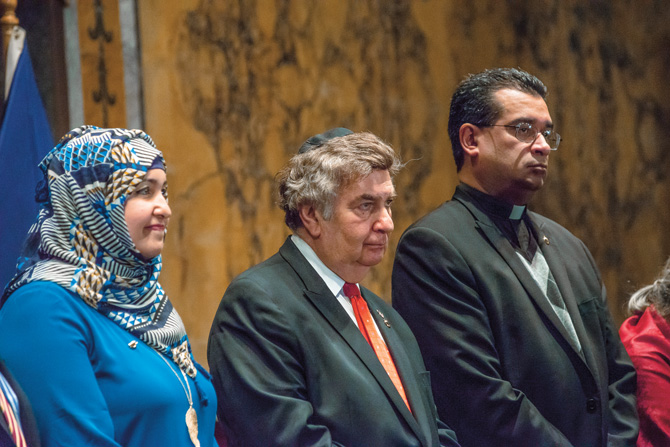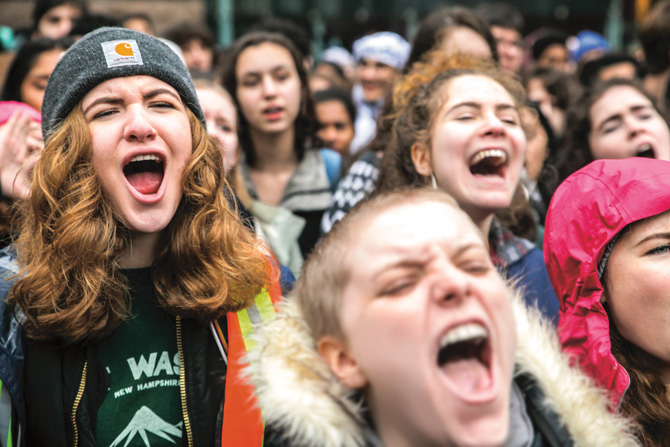Imagine that you live in a country where you aren’t allowed to say or write what you think. The government controls what websites you can visit, and peacefully voicing your opinions can land you in jail. Thankfully, that isn’t how things work in the United States. Many of our basic rights are protected by the First Amendment to the U.S. Constitution. Here’s a breakdown of the freedoms it preserves.
Your First Amendment Rights
The First Amendment to
the U.S. Constitution
“Congress shall make no law respecting an establishment of religion, or prohibiting the free exercise thereof; or abridging the freedom of speech, or of the press; or the right of the people peaceably to assemble, and to petition the Government for a redress of grievances.”

Freedom of Religion
The First Amendment guarantees that Americans can practice any religion they choose—or none at all. It also prevents the government from establishing an official religion.

Freedom of the Press
Americans can publish factual information without fear of having it censored by the government. This isn’t the case in many other countries. In China, for example, the nation’s Communist government strictly controls the flow of information. It often shuts down websites to prevent people from reading articles that are critical of the government.

Freedom to Petition the Government
To petition means to make a formal request. Americans can exercise their right to petition the government by sending emails or letters to elected officials about problems they would like solved. Want your voice to be heard? Simply visit whitehouse.gov/contact to send a message to the president about an issue you care about.

Freedom of Speech
The First Amendment guarantees your right to voice your opinions—even if they’re unpopular. But freedom of speech doesn’t protect just spoken words. It also protects how you express yourself in writing, artwork, and even through your hairstyle and clothes. Like all our rights, however, free speech has limits. In school, for example, you don’t have the right to disrupt your class or bully other students.

Freedom of Assembly
The right to assemble means that people can gather peacefully to express their beliefs. This can be as simple as joining a group, such as a political party. It also means that Americans have the right to gather to protest laws or the actions of organizations they don’t agree with.
